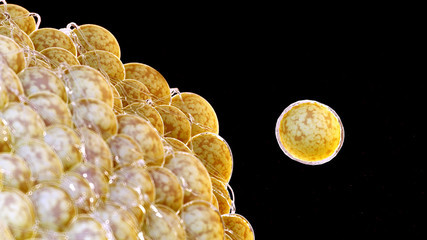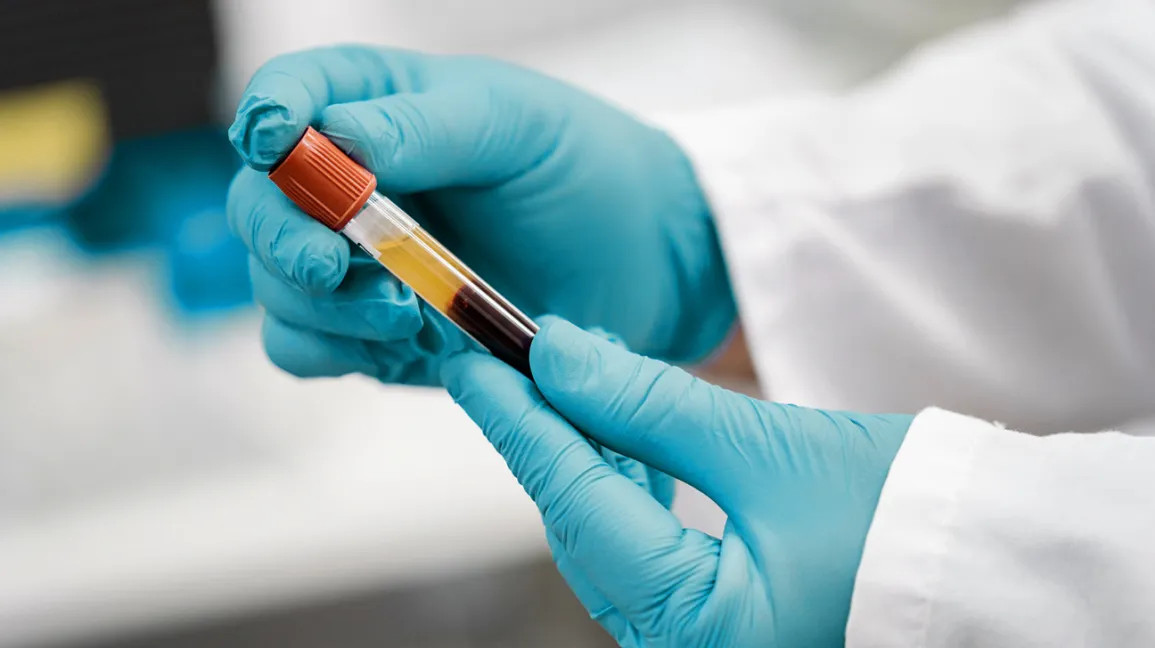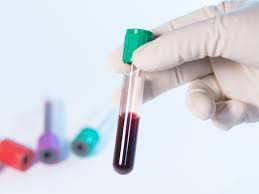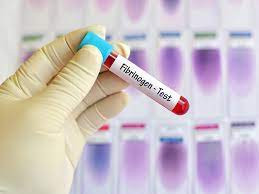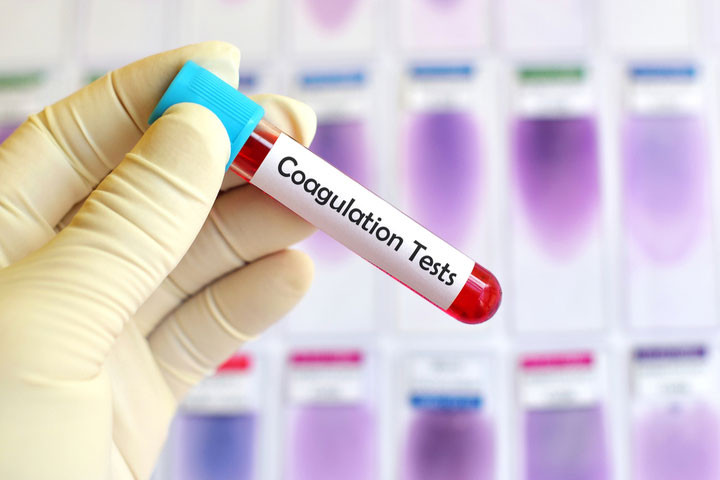Definisi
Hormon merupakan senyawa yang berperan dalam beberapa fungsi dalam tubuh dan membawa pesan melalui darah ke organ, otot dan jaringan lainnya. Sinyal tersebut memberikan informasi mengenai apa dan kapan yang harus dilakukan. Adipokine (atau bisa disebut dengan adiponektin) merupakan hormon pada jaringan lemak yang memiliki peranan dalam fungsi energi dan proses metabolisme. Proses metabolisme tersebut merupakan reaksi kimia di dalam tubuh yang mengubah makanan (kalori) menjadi energi atau mengantarkan energi ke dalam sel tubuh. Adiponektin juga membantu sensitivitas insulin dan memiliki efek anti inflamasi.
Jaringan lemak tubuh memiliki tanggung jawab utama dalam menghasilkan adiponektin, walaupun jaringan tubuh lainnya juga menghasilkan hormon tersebut. Adiponektin berasal dari jaringan lemak yang menyimpan energi pada bagian jaringan lemak putih yang disebut dengan adiposit. Jaringan tersebut utamanya akan menghasilkan dan melepaskan adiponektin. Jaringan lemak putih merupakan tipe lemak utama dalam tubuh. Jaringan tersebut berada dibawah kulit (lemak subkutan), disekitar organ dalam (viceral fat) dan tulang.
Tipe sel lain yang menghasilkan adiponektin termasuk sel otot tulang, sel jantung dan sel endotelial (sel yang membentuk membran tipis di dalam jantung dan pembuluh darah). Pemeriksaan adiponektin bertujuan untuk mengetahui kadar adiponektin di dalam darah.
Indikasi
Pemeriksaan adiponektin mungkin dilakukan oleh dokter untuk mendapatkan informasi dalam membantu diagnosis terkait kondisi metabolisme seperti diabetes tipe 2 dan sindrom metabolik. Pemeriksaan ini mungkin dilakukan juga dengan beberapa pemeriksaan lain untuk mendukung diagnosis Anda.
Baca Juga: Sindrom Metabolik - Definisi, Penyebab, Gejala, dan Pengobatannya
Kontraindikasi
Tidak ada kontraindikasi khusus terkait pemeriksaan adiponektin.
Persiapan Sebelum Pemeriksaan
Tidak ada persiapan khusus sebelum melakukan pemeriksaan adiponektin. Pemeriksaan ini tidak mewajibkan Anda puasa sebelumnya. Informasikan pada dokter bila Anda mengonsumsi obat atau makanan tertentu yang dapat memengaruhi pemeriksaan. Pastikan kondisi Anda tenang dan terhidrasi.
Prosedur Pemeriksaan
Pemeriksaan adiponektin menggunakan sampel darah. Petugas laboratorium akan membersihkan lengan Anda dengan alcohol swab dan mengambil sedikit darah dari pembuluh darah vena di lengan menggunakan spuit steril. Pada bayi, pengambilan darah dilakukan pada tumit.
Bila darah diambil melalui pembuluh darah, permukaan kulit akan dibersihkan dengan antiseptik dan diikat dengan alat khusus (tourniquet) pada area lengan untuk memberikan tekanan dan menyebabkan pembuluh darah membengkak dengan darah. Jarum mengambil sampel akan dimasukkan melalui pembuluh darah (biasanya pada bagian lengan dalam atau siku atau pada bagian punggung tangan) dan darah akan diambil masuk ke dalam vial atau syringe. Setelah prosedur, tourniquet dilepaskan dan bekas area pengambilan darah akan ditutup dengan perban untuk menghentikan pendarahan.
Selanjutnya, darah akan dimasukan ke dalam tabung darah dan diperiksa oleh petugas laboratorium pada mesin khusus. Pemeriksaan ini mungkin akan memakan waktu sehari untuk mendapatkan hasil. Risiko pemeriksaan ini cukup minimal Beberapa orang merasakan nyeri, pusing, dan memar saat pengambilan darah. Namun, hal ini biasanya hilang dengan cepat. Prosedur pemeriksaan ini cukup sederhana dan biasanya akan memakan waktu hingga 10 menit untuk mengambil darah darah dan merapikannya.
Nilai Normal dan Abnormal
Nilai normal pemeriksaan untuk tingkat adiponektin dapat sedikit bervariasi antara satu laboratorium dengan yang lain. Nilai normal adiponektin berdasarkan jenis kelamin dan berat massa index tubuh.
Nilai normal adiponektin pada laki-laki, yaitu:
- BMI kurang dari 25 : 5-37 mikrogram per mililiter (ug/mL)
- BMI dari 25 hingga 30 : 5-28 ug/mL
- BMI lebih dari 30 : 2-20 ug/mL
Nilai normal adiponektin pada perempuan, yaitu:
- BMI kurang dari 25 : 5-37 ug/mL
- BMI dari 25 hingga 30 : 4-20 ug/mL
- BMI lebih dari 30 : 4-22 ug/mL
Hasil dan Saran (Pemeriksaan Lanjutan)
Hasil pemeriksaan adiponektin yang tidak normal dapat disebabkan oleh beberapa hal, seperti:
- obesitas
- berat badan yang kurang (underweight)
- resistensi insulin
- atherosklerosis
- lipodistrofi
Kondisi tersebut terkait dengan nilai adiponektin yang lebih rendah dari normal. Pada pasien dengan kondisi obesitas memiliki penurunan nilai adiponektin. Pada kondisi berat badan kurang (underweight) seperti anoreksia atau malnutrisi memiliki kondisi nilai adiponektin lebih tinggi dari normal. Kehilangan berat badan pada obesitas dapat menyebabkan peningkatan nilai adiponektin.
Konsultasikan ke Dokter yang Tepat
Bila hasil pemeriksaan Adiponektin Anda menunjukkan hasil tidak normal, Anda dapat berkonsultasi dengan dokter umum untuk mendapatkan diagnosis dan terapi yang sesuai. Bila diperlukan, Anda juga dapat berkonsultasi dengan dokter spesialis penyakit dalam untuk mendapatkan penanganan dan terapi yang tepat. Dokter mungkin akan menyarankan Anda melakukan pemeriksaan tambahan untuk memastikan diagnosis.
Mau tahu informasi seputar hasil pemeriksaan laboratorium, radiologi, dan lainnya? Cek di sini, ya!
- dr. Monica Salim
Adiponectin. (2022). Retrieved 27 June 2023, from https://my.clevelandclinic.org/health/articles/22439-adiponectin#:~:text
Adiponectin : Role in Physioogy and Pathophysiology. (2020). Retrieved 27 June 2023, from https://www.ncbi.nlm.nih.gov/pmc/articles/PMC7554603/

